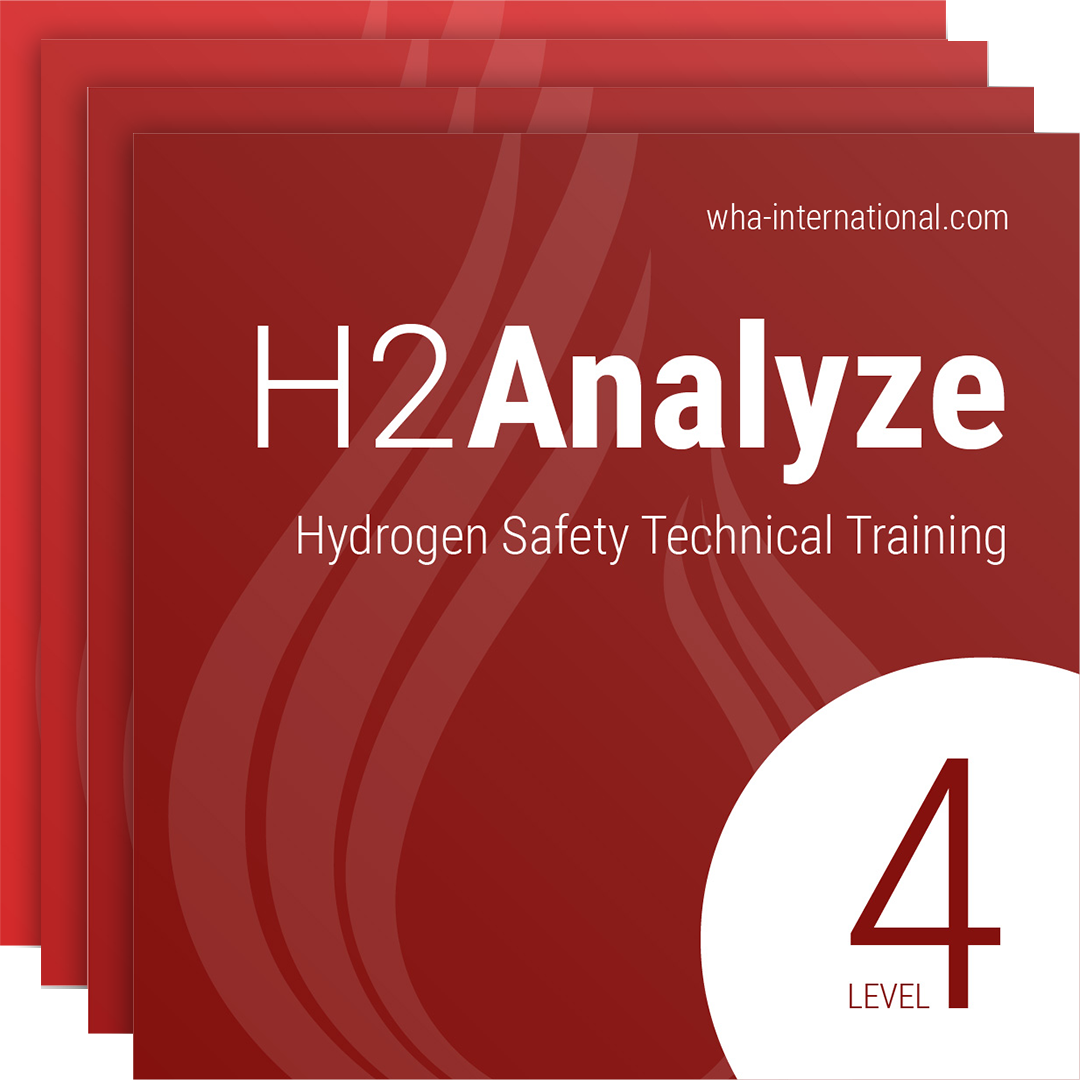Are Your Systems and Components Safe for Use With Hydrogen?
As the hydrogen economy grows, industry standards and guidelines are struggling to keep up and can be difficult to navigate. For many new applications, hydrogen-specific standards do not yet exist, and industry is dependent on risk analysis to avoid hydrogen combustion events. WHA International is paving the way to help ensure a safe future for everyone involved with hydrogen.
Your Hydrogen Safety Experts
For over 35 years, WHA International has helped industries around the world understand and mitigate the risks associated with oxygen, hydrogen, and other hazardous fluids. Based on our experience and knowledge of established methodologies, we’ve developed a Hydrogen Combustion Risk Analysis (HCRA) method customized to the unique hazards of hydrogen today.
The HCRA Approach
Our hydrogen risk analysis approach sets the bar for industry, providing technical risk analysis for your unique installation and operating conditions. The approach is specific to hydrogen and analyzes the probability of operations and failure modes that can lead to combustible mixtures and ignition events resulting in fire, deflagration, and/or detonation. It also considers the consequence of combustion as they relate to personnel safety, effects on equipment, and impact to business objectives. Our analysis may be supported by quantitative data, modeling, and/or custom testing.
Services include:
- System documentation
- Component information review
- System-level hazard analysis
- Design review (overall system design and relationships between subsystems and components)
- Administrative controls review (operating, maintenance, emergency, and training procedures)
- Material compatibility analysis
- Combustion consequence and secondary effects analysis
- Component analysis
Hydrogen Combustion Risk Analysis Types
Our risk analysis solutions can be applied to both components and systems utilizing hydrogen or hydrogen blends.
System-Level
Analyzes the overall risks and relationships between components and subsystems within a hydrogen system. Considers design as well as operational and administrative controls.
Component-Level
Analyzes the parts, materials, and overall risks within components intended for use in hydrogen systems.
Hydrogen Combustion Risk Analysis Levels
We offer combustion risk analyses at several different levels, depending on the level of detail you need.
Level 1: HHC
Hydrogen Hazard Consult
High-level review intended to provide rapid feedback. Typically appropriate for verbal remote review.
Level 2: HHR
Hydrogen Hazards Review
Same approach as Level 1, but includes a short summary report documenting the results.
Level 3: HCRA
Hydrogen Combustion Risk Analysis
Our most extensive hazards analysis for hydrogen systems and components, including detailed probability rankings and recommended hazard mitigation strategies.
Hydrogen Industry Experience
- Hydrogen production
- Hydrogen storage
- Hydrogen transportation and pipelines
- Hydrogen electrolyzers and fuel cells
- Hydrogen as a combustion fuel
- Systems utilizing hydrogen blends, including natural gas and hybrid mixtures
- Applications in the automotive and transportation industry
- Aerospace systems
- Industrial hydrogen applications
- Novel applications of hydrogen
Industry Compliance
- AIAA
- ASME (Including B31.12)
- ASTM
- CGA (Including G-5)
- CSA
- ANSI
- NFPA (Including NFPA 2, NFPA 55, NFPA 70)
- ISO (Including TC 197, ISO/TR 15916:2015, ISO/TS 19880, ISO 22734, and others)
- SAE (Including SAE J2601)
- ISO (Including TC 197, ISO/TR 15916:2015, ISO/TS 19880, and others)
- ATEX (Including ATEX directive 99/92/EC and 2014/34/EU)
- BS EN
- DIN
- EIC (Including TC 105, IEC EN 60079)
- PED (Including PED 97/23/EC)
- TPED (Including 1999/36/EC and 2014/94/UE)
- And others

